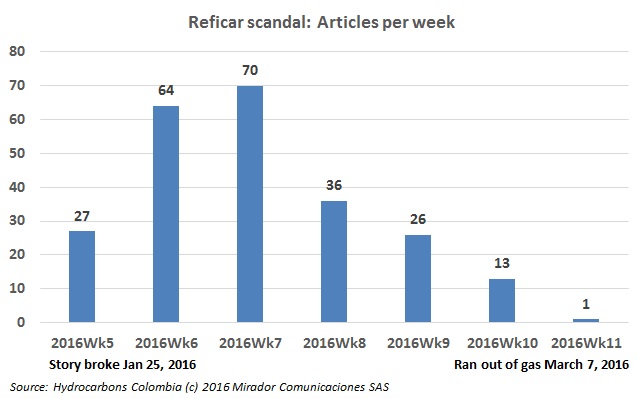A shifting rationale and regulatory framework have meant that Colombia’s biofuels industry has lost its momentum, and industry associations say the government has not kept its end of the bargain.
When the replacement to now former Minister of Mines and Energy Tomás González is named it will be the sixth minister to hold the post in the last five years, an uncomfortable fact that points to a lack of proper planning.
Although it has served as a lightning rod for government criticism in Barrancabermeja, Santander, Ecopetrol’s (NYSE:EC) board of directors gave a definitive suspension to plans to modernize the city’s refinery in the 2016-2020 strategic plan.
A high Cartagena court has halted the construction of a strategic section of a natural gas pipeline which would help supply thermal generators in Cartagena with the fuel.
The resignation letter of former Minister of Mines and Energy (MinMinas) Tomás González has made it to the national press, and in it he defends his work and policies to President Juan Manuel Santos, despite a “perfect storm” of problems which arose in his tenure. No mention of the Inspector General’s investigation.
The Ministry of Mines and Energy published a draft of its 2016 strategic plan in February for comments, and the hydrocarbons industry’s priorities were meager at the very best. A new minister means an opportunity to address the agenda but we think oil and gas may be even further down their priority list than it was for Tomás González.
Emboldened by the resignation of the Minister of Mines and Energy Tomás González over potential energy rationing (among other issues), Colombia’s Senate has also called for the resignation of the members of the Energy and Gas Regulation Commission (CREG).
The Colombian Chamber of Oil Goods and Services (Campetrol) has called on the government to allow the delay of tax payments as another measure to support oil companies impacted by the low price of oil.

The initial headline frenzy generated by a General Controller report on budget overruns at the Cartagena Refinery (Reficar) has slowed, as some of the big names implicated in the scandal sound off with their arguments and explanations. We summarize some of the bigger stories.
The Minister of Mines and Energy Tomás González offered his resignation, taking the political blame for not enacting measures quicker to prevent potential energy rationing. However, his resignation comes after the opening of a formal investigation into contracts associated with his wife’s company.